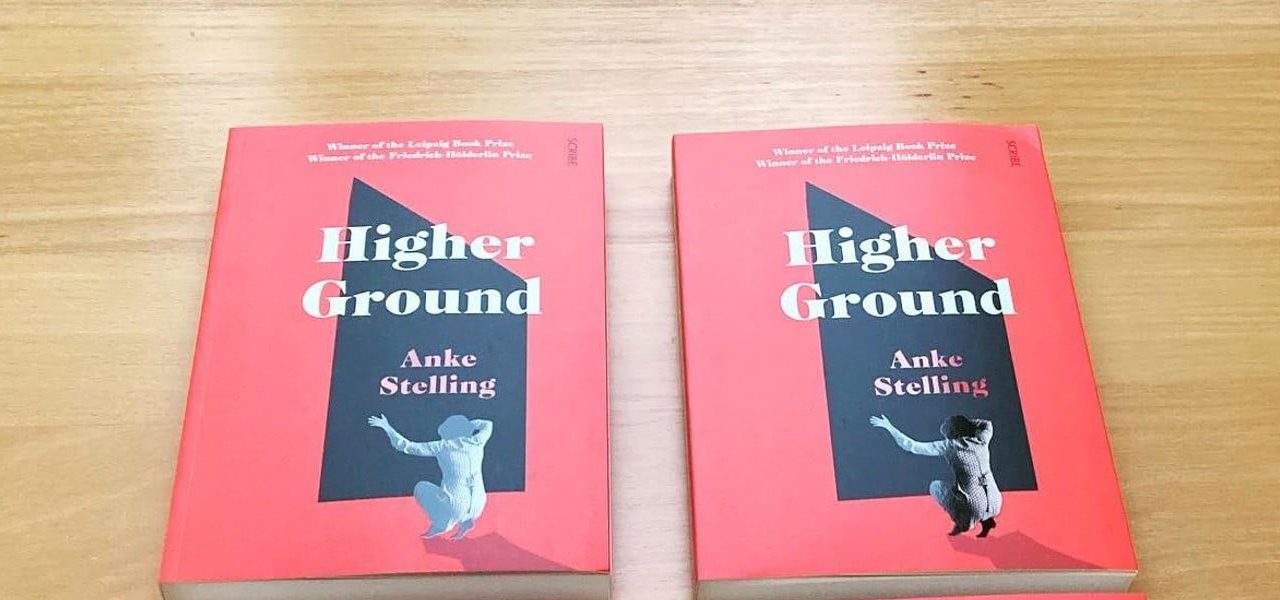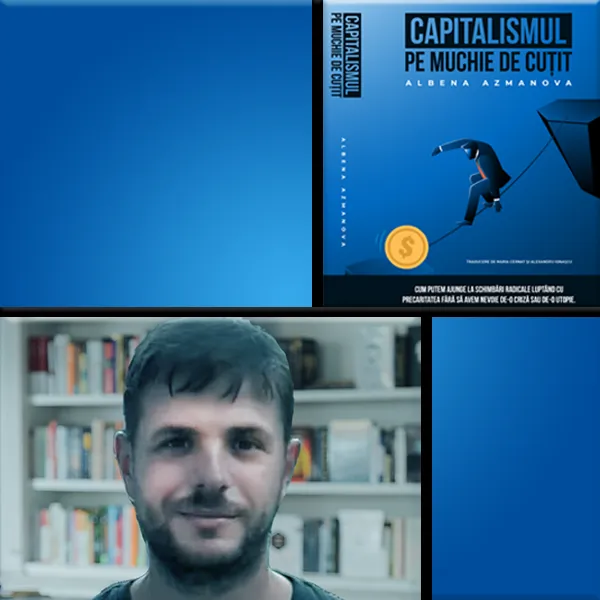It was a wicked, foolish lie,
Mankind will never fly,
Said the Bishop to the People.
Bertold Brecht, Ulm 1592
On kitchen floors and Lidl
The first stories I ever heard about Western Germany were told to me by a physicist friend of our family who emigrated to Ulm in the early 1990s. He and his wife were shocked that during a dinner party the host showed them for almost an hour photos of the new kitchen floor she was planning to install. During Bulgarian socialism, people used the pejorative term ‘esnaf’ to describe petit bourgeois people who cared too much about objects and this small scene was for us the embodiment of being an esnaf.
But then our friend in turn shocked his university colleagues by appearing to the office with a bag from Lidl, which they were quick to point out did not correspond to his social status. In Bulgaria before 1989, there was no difference between food shops in terms of the class profile of people who shop there. I was born in 1989 and I saw such differences slowly developing in Bulgaria throughout my life. Still, even today, Lidl in Sofia is not particularly cheap and sells imported fancy Spanish and Italian foods.
This might seem all too trivial but can you understand my astonishment when I opened Anke Stelling’s award-winning Higher Ground and realised that the first three pages of the book contained detailed descriptions of kitchen floors. They were soon to be followed by descriptions of the main character Resi shopping in Lidl that were supposed to signal to the reader anger, financial instability and the threat of being relegated to a working class neighbourhood.
What’s the book about?
Told from the point of view of Resi, a struggling writer (with four kids and married to an artist), the book is a witty, disillusioned account of the hypocrisy of Berlin’s left. It makes it perfectly clear that money and kitchen floors matter even among, or especially among, progressive left-wing hipsters. Accounts of the repetitiveness of everyday life in Resi’s hectic family (all families are hectic, whoever argues anything else, lies) are interspersed with sharp observations of the small betrayals and the big compromises her leftish friends make as they become adults.
The plot of the book revolves around one main problem: the main character — Resi — and her husband Sven, unlike the others, are not rich. They are the token artists of the progressive group, and even worse they are kicked out of the flat they are sub-renting after Resi publishes a book in which she criticizes her friends and tells things as they are. Resi, it seems, comes from parrhesia — speaking candidly and freely, speaking truth to power, or what is even more tricky – speaking truth to friends.
The dilemmas of the left
While I wouldn’t say Higher Ground is my favourite book, it made me think as no other text I have read this year. Higher Ground can be taken as a symptom, an embodiment of the contemporary left, its dilemmas and sadly, its ultimate lack of imagination beyond (brilliant) critique. As several reviewers have already observed, the book is a bit whiney and it remains uncertain whether the protagonist really takes the ‘higher moral ground’ in her critique of everyone around her. Resi clearly wants to belong with her better-off upper middle-class friends, regrets not being able to, and ultimately, as she admits herself, takes the approach of ‘the grapes are too sour.’ In fact, it is her quiet, almost absent from the text, husband that actually has the higher ground by refusing to engage with the hipster ‘we-are-all-so-progressive’ fake-ness going on. Why does this matter?
It matters beyond this particular book because it reminds me of a refrain I often encounter while reading conservative media for research — the refrain that the ‘left is envious,’ that it wants to take what the successful self-made entrepreneurs have earned and redistribute it. I’ve always dismissed this refrain as absurd, one of the many crazy rhetorical tricks of the right, until I read Resi’s monologues. And I thought “Oh, no, she is envious!”
The Kitchen Debate
On July 24 1959, an important Cold War ideological debate took place at the American National Exhibition at Sokolniki Park in Moscow. The Americans had built a suburban model house, which they claimed everyone in America could afford. Vice President Nixon personally guided Soviet First Secretary Nikita Khrushchev through the house with the two of them debating capitalism vs. socialism in many locations, but especially in the kitchen. The event during which the two of them discussed politics, the usefulness of lemon juicers, and the desirability of fancy kitchen gadgets has remained in history as the Kitchen Debate. And while it might seem vacuous, an entertainment-driven clash about small things, the Kitchen Debate seemed to dramatically predict one of the reasons for the fall of real existing socialism — it simply did not offer people nice enough kitchens. Sadly, it seems this matters.
Against being an ‘esnaf’
I grew up with stories of falling apart small socialist kitchens with almost no furniture where professors and students sat together, discussed life and science, played the guitar and felt a real sense of community. In such a bohemian socialist environment, caring about goods felt like being an ‘esnaf,’ literally a trader. George Markov, one of the biggest critiques of Bulgarian communism, in fact accused party leaders of becoming ‘esnafs’ and caring about goods.
Ultimately, the strong ideological critique of ‘being an esnaf’ during socialism coexisted with the practical reality of everyone being obsessed with Western consumer goods: denim jeans, bananas, cassette-players, etc. People wanted these things because they didn’t have them. What they did have was free and equal access to healthcare, education, long vacations for all. In retrospect, citizens seem to have taken this widespread social equality as given (now, when we lost it, we know this is not the case). Therefore, they bemoaned the lack of consumer goods. What added insult to the offence of lacking bananas, cars and kitchen gadgets was that the party elites had access to them, flaunted it, and were therefore widely resented for this. Maybe, contrary to my initial intuition, we are all ultimately ‘esnafs’ who care about where we shop, what clothes we wear and what products we have on the table.
This brings the pressing and unresolved question: should socialism, as we imagine it today, be about not caring where you shop or should it be about everyone being able to shop in Almanatura? A Lidl Francis of Assisi or an organic consumer paradise for all? If anything, Resi in Higher Ground clearly suffers about having to go to Lidl.
Parrhesia vs. utopia
Ultimately, Higher Ground is a book-symptom of the contemporary left precisely because it’s so sharp when it comes to criticism and so poor on alternatives. Resi complains about her rich ex-boyfriend throughout the whole book but ultimately tries to kiss him. Leftists are always critical but don’t we all ultimately wait for the opportunity to get a stable job, a house with a garden, a vacation in Greece? The middle-class left of today is stuck in the paradoxical position of claiming higher moral ground when talking about capitalism, while at the same time bemoaning the prospect of becoming ‘lower class’ personally.
Resi says things as they are. Money matters. Kitchen floors matter. Inheritance matters. This is what separates even people with the same ideology from each other. But it shouldn’t be like this.
What does Resi offer as an alternative? Nothing. To be fair, Resi doesn’t need to offer any alternative since she is a character in a novel — a genre that is (luckily) quite different from a political science book. But still, even on the political scene, the contemporary left is plighted by an ultimate inability to thing big, to avoid being mired in in-fights, hipster-jealousy and mutual accusations of being ‘bourgeois’ amidst an ever-more nuanced self-critique.
So enough with parrhesia, we need more utopias! Not ‘consumer responsibility, do-it-yourself’ utopias (so skilfully problematized in the book) but all-encompassing visions of how our societies should be transformed.
We need more illusions and fresh thinking. Not illusions in the sense of hypocritically pretending everyone is equal but illusions in the sense of wild dreams and plans how to make this possible. The left needs to become ‘illusion-ed,’ enchanted and enchanting. Otherwise it will continue self-destroying itself with ‘telling things as they are’ and doubts. Newly emerging ideas of sustainability transformations, reclaiming public ownership and economic democracy, or collectivizing Facebook, are good starting points to discuss.
The Tailor of Ulm
Some years ago, I heard the name of the city of Ulm again: this time not as part of an emigration story, but in relation to Lucio Magri’s seminal history of the Italian Communist Party The tailor of Ulm. The book’s title is a reference to a poem by Bertolt Brecht on the tailor of Ulm who believed he could construct a flying machine. After he crashed to the ground, the local bishop said to the people: “That man is not a bird / It was a wicked, foolish lie / Mankind will never fly”.
Socialism in the East crashed, the Western German left-wing promise of social mobility, which Anke Stelling’s book reflects on, also crashed. But this is not a reason to renounce all illusions. Now more than ever we need to dream big and to look up again. Taking the higher ground by criticizing kitchen floor inequality (while dreaming of a nice kitchen floor) is good, but not enough.
Photo: (source: Twitter)
The Barricade is an independent platform, which is supported financially by its readers. If you have enjoyed reading this article, support The Barricade’s existence! See how you can help – here!
Also, you can subscribe to our Patreon page. The Barricade also has a booming Telegram channel, a Twitter account and a YouTube channel, where all the podcasts are hosted. It can also be followed in Rumble, Spotify, SoundCloud and Instagram.











